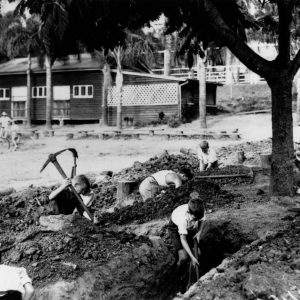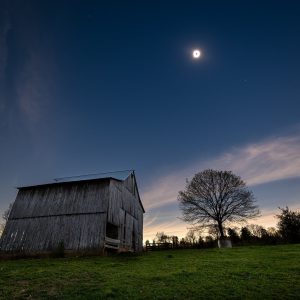
Beyond the Magnolia: Exploring the Complexity of Southern Identity
The South. A region conjuring images of sun-drenched cotton fields, antebellum mansions draped in Spanish moss, sweet tea on the porch, and the lilting drawl of its inhabitants. But to reduce the Southern identity to these romanticized clichés is to ignore a rich tapestry woven from threads of resilience, contradiction, and profound historical weight. Beyond the magnolia blooms a complex and multifaceted reality, one that demands a nuanced exploration.
This isn’t a story of simple narratives. It’s a story told in whispers and shouts, in the echoes of enslaved ancestors and the determined voices of their descendants. It’s a story etched into the landscape, visible in the crumbling grandeur of plantation homes and the vibrant energy of burgeoning urban centers. Understanding the Southern identity requires acknowledging its multifaceted nature, its inherent paradoxes, and its ongoing evolution.
The Legacy of the Past: A Shadow and a Foundation
The weight of the past, specifically the legacy of slavery and the Civil War, casts a long shadow across the Southern landscape. This isn’t simply a matter of historical fact; it’s a living reality that continues to shape social, political, and economic structures. The lingering effects of systemic racism, ingrained prejudices, and the struggle for racial justice are interwoven into the fabric of Southern life. This legacy, however painful, is fundamental to understanding the region’s present. It’s a history that must be confronted, not romanticized or ignored, to build a truly equitable future.
Beyond the Plantation Myth: Diverse Voices and Experiences
The stereotypical image of the South often overlooks the astonishing diversity within its borders. From the Appalachian Mountains to the Gulf Coast, from bustling cities to quiet rural towns, the South is a mosaic of distinct cultures and experiences. African American communities, with their rich history of resilience and cultural contribution, have played – and continue to play – a vital role in shaping the region’s identity. Native American tribes, whose ancestral lands were often disrupted and marginalized, offer another crucial perspective. Immigrant communities, too, have added their vibrant threads to the Southern fabric, enriching the cultural landscape and challenging monolithic conceptions.
The Evolution of Southern Identity: Progress and Persistence
The South is not a static entity. It’s a dynamic region undergoing constant transformation. The Civil Rights Movement, while leaving a profound mark, was not the endpoint but a critical turning point. The South continues to grapple with issues of racial equality, economic disparity, and political polarization. Yet, alongside these challenges, there’s a palpable sense of progress. A new generation of Southern voices is emerging, challenging established norms and demanding a more inclusive and equitable future. This generation embraces the complexities of their heritage while actively working to shape a more just and representative South.
A Table of Contrasting Southern Identities:
| Stereotype | Reality |
|---|---|
| Gentle Southern Belle | Strong women facing complex societal roles |
| Lazy Southern Man | Diverse workforce, entrepreneurial spirit |
| Homogenous Culture | Rich tapestry of diverse ethnicities & cultures |
| Stagnant Tradition | Dynamic region undergoing constant evolution |
| Racially Harmonious | Ongoing struggle for racial justice and equality |
The Future of the South: A Work in Progress
The journey towards a complete and accurate understanding of Southern identity is an ongoing process. It demands continuous self-reflection, honest dialogue, and a commitment to confronting uncomfortable truths. The future of the South depends on its ability to embrace its multifaceted history, celebrate its diversity, and work towards a more equitable and inclusive future for all its inhabitants. Only then can the true story of the South, beyond the magnolia, be fully told. Only then can its complexities be truly understood and appreciated. The journey is long, but the destination – a more just and vibrant South – is worth the effort.

Additional Information
Beyond the Magnolia: A Deeper Dive into the Complexity of Southern Identity
The concept of “Southern identity” is far from monolithic. While the romanticized image of magnolias, antebellum mansions, and sweet tea persists, a deeper analysis reveals a multifaceted reality shaped by historical trauma, persistent inequalities, and evolving social dynamics. Beyond the superficial charm lies a complex tapestry woven from threads of race, class, religion, and regional variations, all contributing to a nuanced understanding that transcends simplistic stereotypes.
1. The Legacy of Slavery and its Enduring Impact:
The shadow of slavery looms large over any discussion of Southern identity. Its economic, social, and psychological consequences continue to resonate today. The disproportionate poverty and lack of opportunity experienced by African Americans in the South are direct descendants of this brutal system. While legal segregation ended with the Civil Rights Movement, its effects linger in the form of systemic racism embedded in institutions, from education and housing to the criminal justice system. Studies consistently demonstrate racial disparities in wealth accumulation, healthcare access, and educational attainment in the Southern states, highlighting the ongoing legacy of slavery’s economic disenfranchisement. For instance, the persistent wealth gap between Black and white families in the South is significantly wider than the national average, a stark reminder of the intergenerational impact of slavery and Jim Crow.
2. The Myth of the “Lost Cause” and its Modern Manifestations:
The “Lost Cause” mythology, which romanticizes the Confederacy and minimizes the role of slavery in the Civil War, continues to influence Southern identity. This narrative, often perpetuated through monuments, historical interpretations, and popular culture, obscures the brutal realities of slavery and the systemic oppression that followed. The ongoing debate surrounding Confederate monuments exemplifies the tension between preserving historical artifacts and acknowledging their painful association with white supremacy. The removal or contextualization of these monuments represents a significant shift in how the South confronts its past and redefines its identity.
3. Class Divisions and Regional Variations:
Southern identity is not uniformly experienced across all social classes. The experiences of a wealthy planter’s descendant differ vastly from those of a rural farmworker, even within the same state. Regional differences also play a crucial role. The cultural landscape of Appalachia, for instance, differs significantly from that of the coastal plains or the Piedmont region. These regional variations in culture, economy, and social structures contribute to a mosaic of Southern identities, challenging the notion of a single, cohesive identity. The economic disparities between urban and rural areas within the South further complicate this picture, highlighting the need to avoid generalizations.
4. Religious Influence and its Shifting Landscape:
Religion, particularly evangelical Christianity, has historically played a significant role in shaping Southern culture and identity. However, the South’s religious landscape is becoming increasingly diverse, with the growth of non-Christian faiths and secular populations. This shift challenges traditional notions of Southern identity tied to specific religious beliefs and practices. The evolving role of religion in Southern politics and social life adds another layer of complexity to the understanding of Southern identity in the 21st century.
5. The Ongoing Struggle for Racial Reconciliation and Social Justice:
The ongoing struggle for racial justice and equality continues to shape the evolving Southern identity. The Civil Rights Movement marked a turning point, but the fight for true equality remains a work in progress. Contemporary social movements, such as Black Lives Matter, highlight the ongoing need for addressing systemic racism and promoting social justice. The South’s response to these movements reflects its evolving identity and its grappling with its complicated past. Analyzing the successes and failures of these movements provides valuable insights into the current state and future trajectory of Southern identity.
In conclusion, understanding Southern identity requires moving beyond simplistic narratives and embracing the complexity inherent in its history and present-day realities. By acknowledging the legacy of slavery, confronting the “Lost Cause” mythology, recognizing class and regional variations, understanding the evolving religious landscape, and acknowledging the ongoing struggle for racial justice, we can arrive at a more nuanced and accurate understanding of this multifaceted identity. Further research focusing on qualitative data, oral histories, and community studies would enrich our comprehension even further, moving beyond broad statistical analyses to capture the lived experiences that shape this complex and dynamic Southern identity.






